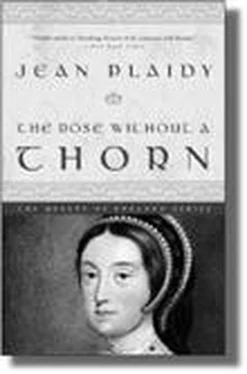Jean Plaidy - Mary, Queen of France - The Story of the Youngest Sister of Henry VIII
Здесь есть возможность читать онлайн «Jean Plaidy - Mary, Queen of France - The Story of the Youngest Sister of Henry VIII» весь текст электронной книги совершенно бесплатно (целиком полную версию без сокращений). В некоторых случаях можно слушать аудио, скачать через торрент в формате fb2 и присутствует краткое содержание. Жанр: Старинная литература, на русском языке. Описание произведения, (предисловие) а так же отзывы посетителей доступны на портале библиотеки ЛибКат.
- Название:Mary, Queen of France: The Story of the Youngest Sister of Henry VIII
- Автор:
- Жанр:
- Год:неизвестен
- ISBN:нет данных
- Рейтинг книги:4 / 5. Голосов: 1
-
Избранное:Добавить в избранное
- Отзывы:
-
Ваша оценка:
- 80
- 1
- 2
- 3
- 4
- 5
Mary, Queen of France: The Story of the Youngest Sister of Henry VIII: краткое содержание, описание и аннотация
Предлагаем к чтению аннотацию, описание, краткое содержание или предисловие (зависит от того, что написал сам автор книги «Mary, Queen of France: The Story of the Youngest Sister of Henry VIII»). Если вы не нашли необходимую информацию о книге — напишите в комментариях, мы постараемся отыскать её.
Mary, Queen of France: The Story of the Youngest Sister of Henry VIII — читать онлайн бесплатно полную книгу (весь текст) целиком
Ниже представлен текст книги, разбитый по страницам. Система сохранения места последней прочитанной страницы, позволяет с удобством читать онлайн бесплатно книгу «Mary, Queen of France: The Story of the Youngest Sister of Henry VIII», без необходимости каждый раз заново искать на чём Вы остановились. Поставьте закладку, и сможете в любой момент перейти на страницу, на которой закончили чтение.
Интервал:
Закладка:
“Perfect!” cried the King. “None will recognize you. Charles, have Howard and Parr brought here. Fitzwater too. And let me consider … who else? …”
Mary was not listening. She was looking at Charles, and her blue eyes reminded him of her brother’s. She was thinking of herself disguised as an Ethiopian queen; in the dance she would insist on dancing with one of the two tallest Turks.
Charles shared her excitement.
How long, he wondered, could they go on in this way!
It was hot in the hall; the torch bearers, their faces blackened, that they might be mistaken for Moors, had ushered in the party, and the dance had begun. There was one among them who leaped higher and danced with more vigor than all the others, which excited cries of wonder from all who beheld him.
The Queen on her dais was indulgent. When the masque was over she would express great surprise that the Turk who danced so miraculously was her husband, the King. What a boy he was! How guileless? She, who carried their child in her womb, loved him with greater tenderness than he would understand.
Now the “foreigners” were mingling with the dancers and the Queen of Ethiopia had selected a tall Turk for her partner.
“Why, Charles,” she said, “you are much too tall for a Turk, you know. And so is Henry.”
“I fear so.”
“It is of no moment. Everyone is happy pretending they do not know who you are and who the King is. Do you think Henry believes he is deceiving them?”
“He wants to believe it, so he does . If he did not, the masque would have no meaning.”
“I am like my brother, Charles. I too believe that which I want to.” Her fingers dug into his flesh and the light pain was exquisite; he wished it were stronger. “But,” she went on, “I would not waste my energy pretending about a masque.”
“You would choose more serious subjects?”
“Charles, I tell you this: I do not believe I shall ever go to Flanders as the Princess of Castile.”
“It is a great match.”
“It is a hateful match. I loathe that boy.”
“It was once said that you loved him dearly.”
“My women used to put his picture by my bed so that it was the first thing I saw on waking; they used to tell me I was in love with him, that I could not wait for the day when we would be husband and wife.”
“And was it not so?”
“Charles, do not be foolish! How could it be? What did I know of love? I had never seen the boy. Have you seen his picture? He looks like a drooling idiot.”
“The grandson of Maximilian and Ferdinand could scarcely be that.”
“Why could he not be so? His mother is mad.”
“My lady, have a care. People are wondering what causes your vehemence.”
“Have I not reason for vehemence? To be given in marriage to a boy younger than myself … a boy whom I know I shall hate! If I could choose the man I would marry he would be a man . Tall, strong, excelling in the jousts. I have a fancy for an Englishman, Charles. Not an idiot foreigner.”
“Alas, matches are made for princesses.”
“I would I were not a princess.”
“Nay, you are proud. You are like your brother. Your rank delights you.”
“That is true, but there are things that delight me more. Oh, have done with talking round this matter. I know my own mind. I know what I want. Shall I tell you?”
“No, my Princess. It would not be wise.”
“Since when has Charles Brandon become such a sober-sides?”
“Since his emotions became engaged where he knows they should not.”
“Charles! Are you a puppet, then, to be jerked on strings, to be told: Do this! Do that? Or are you a man who has a will of his own?”
“My lady, I should ask you to give me permission to leave your side.”
“Charles, you are a coward!”
“Yes, my lady; and if you have any regard for me, you must see how misplaced it is, for how could you feel friendship for a coward?”
“Friendship!” He heard the tremor in her voice and he knew that she was near to tears. “I am not a child any more, Charles. Let us at least be frank with one another.”
He was silent and she stamped her foot. “Let us be frank,” she repeated.
He gripped her wrist and heard her catch her breath at the pain. In a moment, he thought, she would attract attention to them and the first rumors would start.
He drew her closer to him and said roughly: “Yes, let us be frank. You imagine that you love me.”
“Imagine!” she cried scornfully. “I imagine nothing. I know. And if you are going to say you don’t love me, you’re a liar, Charles Brandon, as well as a coward.”
“And you, a proud Tudor, find you love a liar and coward?”
“One does not love people for their virtues. I know you have been married … twice. I know that you cast off your first wife. I should not love you because you were a virtuous husband to another woman, should I? What care I, how many wives you have had, how many mistresses you have? All I know is this, that one day I shall command you to cast them all aside because …”
“My love,” he murmured tenderly, “you are attracting attention to us. That is not the way.”
“No,” she retorted, “that is not the way. You called me your love.”
“Did you doubt that I love you?”
“No, no. Love such as mine must meet with response. Charles, what shall we do? How can I marry that boy? Is it not a touch of irony that he should be Charles, too. I think of him as that Charles and you as my Charles. What shall we do?”
“My dearest Princess,” he said soberly, “you are the King’s sister. You are affianced to the Prince of Castile. The match has been made and cannot be broken simply because you love a commoner.”
“It must be, Charles. I refuse to marry him. I shall die if they send me away.”
He pressed her hand tightly and she laughed. “How strong you are, Charles. My rings are cutting into my fingers and it is very painful, but I’d rather have pain from you than all the gentleness in the world from any other. What shall I do? Tell me that. What shall I do?”
“First, say nothing of this mad passion of yours to anyone.”
“I have told no one, not even Guildford, though I believe she guesses. She has been with me so long and she knows me so well. She said: ‘My little Princess has changed of late. I could almost wonder whether she was in love.’ Then, Charles, my Charles, she put up the picture of that Charles. But I think she meant to remind me, to warn me. Oh Charles, how I wish I were one of the serving maids … any kind of maid who has her freedom, for freedom to love and marry where one wills are the greatest gifts in the world.”
She was a child, he thought; a vehement, passionate child. This devotion of hers which she was thrusting at him would likely pass. It might well be that in a few weeks’ time she would develop a passion for one of the other young men of the Court, someone younger than himself, for he was more than ten years her senior.
The thought of her youth comforted him. It was pleasant enough to be so favored by the King’s sister. He was at ease. None would take this passion seriously, and certainly he was not to blame for its existence.
If he attempted to seduce her as she was so earnestly inviting him to do, there would be danger. Henry might not respect the virginity of other young women, but he most certainly would his sister’s.
Charles knew that he was being lured into a dangerous—though fascinating—situation, but he believed he was wise enough to steer clear of disaster.
She was pressing close to him in the dance.
“Charles, tell me, what shall we do?”
He whispered: “Wait. Be cautious. Tell no one of this. Who knows what is in store for us?”
Читать дальшеИнтервал:
Закладка:
Похожие книги на «Mary, Queen of France: The Story of the Youngest Sister of Henry VIII»
Представляем Вашему вниманию похожие книги на «Mary, Queen of France: The Story of the Youngest Sister of Henry VIII» списком для выбора. Мы отобрали схожую по названию и смыслу литературу в надежде предоставить читателям больше вариантов отыскать новые, интересные, ещё непрочитанные произведения.
Обсуждение, отзывы о книге «Mary, Queen of France: The Story of the Youngest Sister of Henry VIII» и просто собственные мнения читателей. Оставьте ваши комментарии, напишите, что Вы думаете о произведении, его смысле или главных героях. Укажите что конкретно понравилось, а что нет, и почему Вы так считаете.












